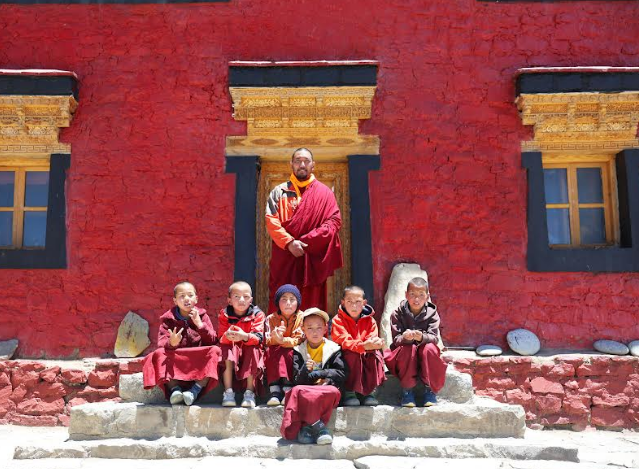AkzoNobel celebrates the enduring power of paint and human spirit at the World's Highest Motorable Village
NewsTeam10/5/2024
AkzoNobel India announced the completion of a Let’s Colour initiative in three remote villages in Himachal Pradesh that literally takes the transformative power of its paint to the top of the world!
Mr. Rahul Jain, ADC of Kaza and Chief Guest of the event, inaugurated the program by lighting a lamp in front of the statue of Lord Buddha. The event was further attended by lamas from Komic and Langza monasteries, along with over 100 residents of Komic, Hikkim, and Langza villages.

The unique “Let’s Colour” project was staged in Komic (the world’s highest village reachable by a motorable road); Hikkim (home to the world’s highest post office); and Langza (where marine fossils older than the Himalayas have been found).
Situated more than 15,000 feet above sea level (around the same height as the base of Mount Everest), the villagers – who are mostly Tibetan Buddhists – endure winter temperatures that regularly dip below -25°C, necessitating the hassle of annual repainting. This now stands changed as 20 painters used more than 10,500 liters of the company’s Dulux Weathershield range of exterior emulsions and enamels to ensure longer lasting all-weather protection for the tribal communities.
“This is more than a ‘Let’s Colour’ project, it symbolizes AkzoNobel’s commitment to paint the future for communities anywhere in the world. Paint really has more power than we think. While creating inspired living space for the residents today, it’s going beyond to provide enduring protection against extreme Himalayan winters and preserve the region’s centuries old Buddhist spiritual and cultural tapestry,” said Rajiv Rajgopal, Chairman and Managing Director of Akzo Nobel India Limited.
The transformation of the three villages located in the Spiti Valley - a high-altitude cold desert region of the Himalayas in Himachal Pradesh – happened over the course of four months. The revitalization that covered a significant 300,000 sq. feet area included more than 100 homes, three schools, three monasteries, 8 cafés and 12 homestays.
The transformation also revived a number of buildings integral to the cultural identity of the region, such as the 14th-century Tangyud monastery (one of the oldest in the world) and the Komic museum.
Collaborating with the villagers to, AkzoNobel team chose a palette of soulful hues steeped in Buddhist traditions - blues for universal compassion, whites symbolizing purity and reds for blessings.
The project's impact extends well beyond aesthetics. A local artist also painted a series of purposeful murals designed to help boost tourism by creating a more vibrant and inviting environment. The young Buddhist monk with a prayer wheel in residence and a meditating Buddha paint a picture of tranquillity at the monastery. Art interventions on the region’s vulnerable snow-leopards, Himalayan ibexes, and yaks spread awareness of native species. The stargazing mural encourages tourists to marvel at the rare sight of Milky Way galaxy.
“We’re extremely proud to harness the transformative power of paint to uplift communities and inspire positive change,” adds Rajgopal. “Whether it involves rejuvenating the timeless Blue City appeal of Jodhpur and keeping homes cooler in the blistering heat, or safeguarding villages on top of the world from extreme sub-zero winters.”
AkzoNobel's global “Let's Colour” initiative was launched in 2009. To date, over 100 million people across 46 countries have benefitted from 3,000 projects, using in excess of two million liters of paint.